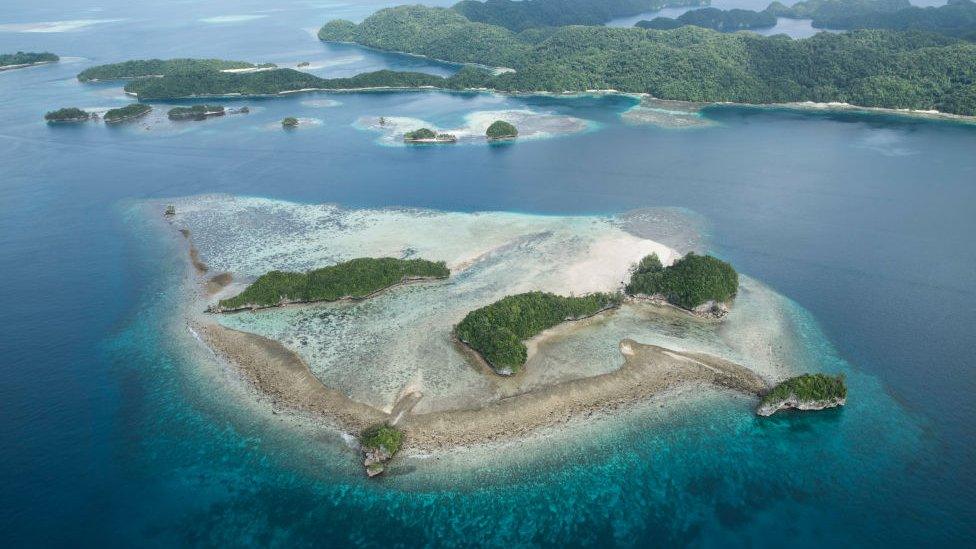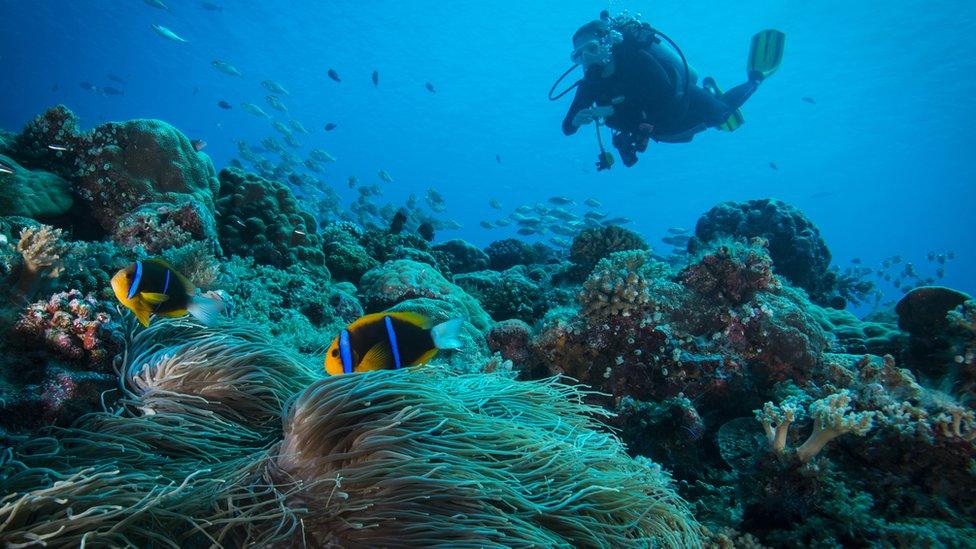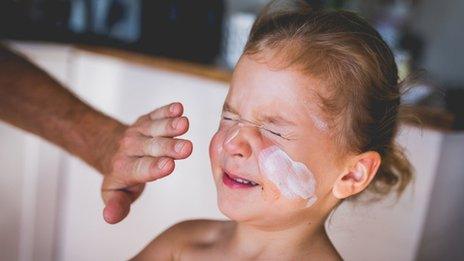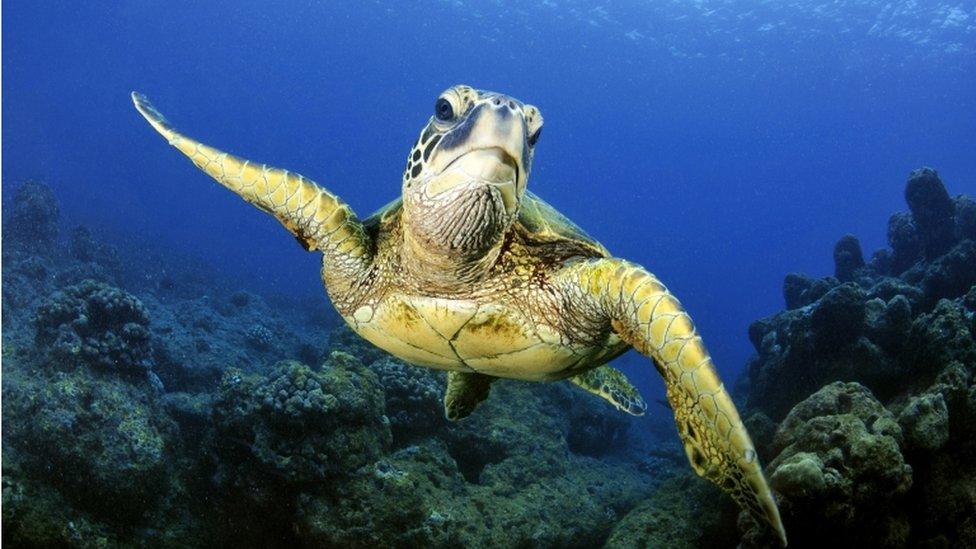Palau is first country to ban 'reef toxic' sun cream
- Published

The Rock Islands in Palau
The Pacific nation of Palau has become the first country to ban sun cream that is harmful to corals and sea life.
From Wednesday, sun cream that includes common ingredients, including oxybenzone, is not allowed to be worn or sold in the country.
Palau's President Tommy Remengesau said: "We have to live and respect the environment because the environment is the nest of life."
The island nation markets itself as a "pristine paradise" for divers.
A lagoon in Palau's Rock Islands is a Unesco World Heritage site., external The country has a population of around 20,000 dotted across hundreds of islands.

The ban - which was announced in 2018 - prohibits sun cream containing any of 10 ingredients, external. The list includes oxybenzone and octinoxate, which absorb ultraviolet light.
The International Coral Reef Foundation said the banned chemicals were "known environmental pollutants - most of them are... incredibly toxic to juvenile stages of many wildlife species".
Mr Remengesau told the AFP news agency: "When science tells us that a practice is damaging to coral reefs, to fish populations, or to the ocean itself, our people take note and our visitors do too.
"Toxic sunscreen chemicals have been found throughout Palau's critical habitats, and in the tissues of our most famous creatures.
"We don't mind being the first nation to ban these chemicals, and we will do our part to spread the word."

A diver among the corals in Palau
The number of sun creams containing the harmful chemicals is declining. In 2018, experts said it was found in about half of creams and lotions.
When the US state of Hawaii announced a similar ban - which comes into effect in 2021, external - major brands were quick to say their products were "reef bill compliant".
Other places to announce bans include the US Virgin Islands - where the law takes effect in March - and the Dutch Caribbean island of Bonaire.
- Published1 November 2018

- Published3 May 2018
